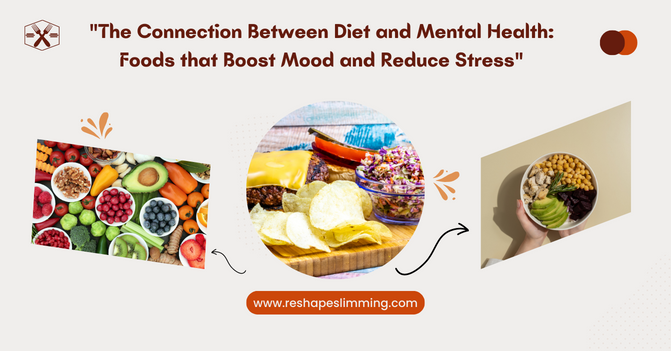- Reshape Slimming Wellness & Diet Center
- +91-72848 25055
- reshapeslimming.diet@gmail.com
- Filter by
- Categories
- Tags
- Authors
- Show all
- All
- DIET & MEDICAL
- HEALTH
- Uncategorized
- VEGETARIAN WEIGHT LOSS DIET RECIPES
- Web Stories
- WEIGHT LOSS
- WEIGHT LOSS BOOSTER DRINKS
- All
- activity
- aging
- ahmedabad
- apple
- apple smoothie
- apples
- applesmoothie
- article
- avocado
- avocado&hummuswrap
- avocadowrap
- ayurved
- ayurveda
- baking
- balancelife
- BEETROOT SOUP
- befit
- beginners
- benefits
- benefitsofremedies
- best dietician in pune
- best dietician in vadodara
- best online dietician
- beyoga
- blackbeans
- blackbeansalad
- blackbeanssoup
- bloodpressure
- boosterdrinks
- breakfast
- breakfastrecipe
- busyprofession
- cauliflower
- cauliflowerpizza
- CHIA SEEDS/SABJA SEEDS WEIGHT LOSS DRINK
- clearskin
- comfort
- cooking
- cranberry
- CURRY
- dates
- dehydration
- diabetes
- DIET
- dietarticle
- dietician
- dieticianinahmedabad
- dieticiansurat
- dietition
- dietplan
- dietrecipe
- diettips
- digestive
- discipline
- dragonfruit
- drinkwater
- dryfruits
- dubai
- eating
- eatinghealthy
- emotional
- energy
- exercise
- eyes
- fats
- fiber
- fiction
- fig
- figbenefits
- fit
- fitness
- food
- foodarticle
- foodmyths
- fruit
- fruits
- grilling
- habits
- habitsforprofession
- hair
- health
- healtharticle
- healthbenefits
- healthier
- healthy
- healthy smoothie
- healthycooking
- healthydiet
- healthyfood
- healthylife
- healthylifestyle
- healthynoodles
- healthyrecipe
- healthyrecipes
- healthyremedies
- healthyrestaurants
- healthyskin
- healthysmoothie
- healthysnacks
- healthywrap
- herbal
- hormones
- how to boost immunity
- how to enhance immunity
- howtolive
- howtomaintaindiet
- hummus
- hummuswrap
- hunger
- hungry
- hydrate
- hydrated
- hydration
- immunity
- improvelife
- india
- indianrecipe
- juices
- juices for weight loss
- kidneyhealth
- LENTIL SOUP
- life
- lifestyle
- liver
- liverhealth
- macronutrients
- management
- manageyourlife
- meal
- mealprepper
- meditation
- mentalhealth
- mind
- noodles
- nutrients
- nutririon
- nutrition
- nutritionfacts
- nutritionist
- nutritiontrends
- online dietrician
- PCOD
- PCOD DIET
- PCOS
- pesto
- physical
- physicalactivity
- physiological
- pizza
- pizzarecipe
- plantbased
- plums
- pregnancy
- preparemeal
- productivity
- profession
- PROSO MILLET IDLI
- protein
- PROTIEN SMOOTHIE
- PUMPKIN SOUP
- qualitysleep
- quinoa
- RAGI DOSA
- recipe
- recipes
- reducestress
- remedies
- reshape
- restaurants
- salad
- science
- scienceofhunger
- selfcare
- slimming
- smoothie
- smoothierecipe
- SOUP
- souprecipe
- spinach
- SPINACH SOUP
- steaming
- STIR FRY TOFU / PANEER VEGETARIAN WEIGHT LOSS DIET RECIPES
- stress
- stretching
- successful
- sugar
- sugarcane
- sugarcanejuice
- sugarintake
- supplements
- surat
- SWAMINARAYAN KHICHDI
- tangerine
- tangerinebenefits
- tastyfood
- timemanagement
- tips
- tonedbody
- top 10 dietician in mumbai
- top 10 dietician in vadodara
- trends
- typesofyoga
- udon
- veg
- vegan
- veganfacts
- veganlifestyle
- veganmyths
- veganrecipe
- veganrecipes
- veganwrap
- vegetarian
- VEGETARIAN WEIGHT LOSS DIET RECIPES
- vegetarianrecipe
- vegetarianrecipes
- vegetarianweightlossrecipe
- vegetarianwrap
- veggie
- veggies
- veggiewrap
- vision
- vitamin
- warmup
- water
- webstory
- weight
- weight lose in diabetes
- weight loss
- WEIGHT LOSS BOOSTER DRINKS
- WEIGHT LOSS BOOSTER RAJMA CURRY
- weight loss diet
- WEIGHT LOSS TADKA DAL| DAL
- weight loss tips
- weightloss
- weightlossdiet
- weightlossrecipe
- weightlosss
- weightlosssmoothie
- wellness
- wellnesshabits
- work
- worklife
- workout
- workoutforbeginners
- wrap
- wraprecipe
- yoga
- yogaforbeginners
- zucchini
- zucchininoodles
August 7, 2023
Published by Dietician Neelam Dhanagar at August 7, 2023
Categories
The Connection between Diet and Mental health : foods that boost mood and reduce stress INTRODUCTION- A increasing amount of evidence reveals that the foods we […]

